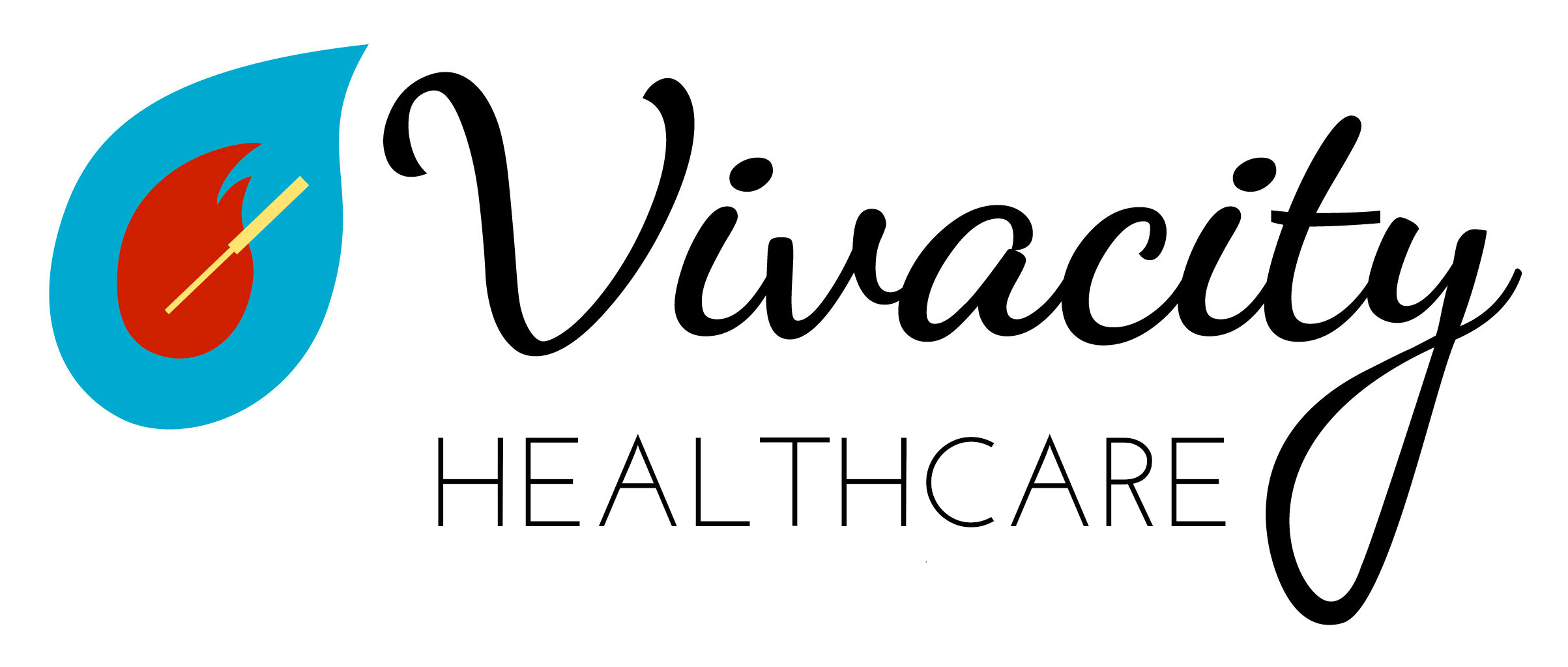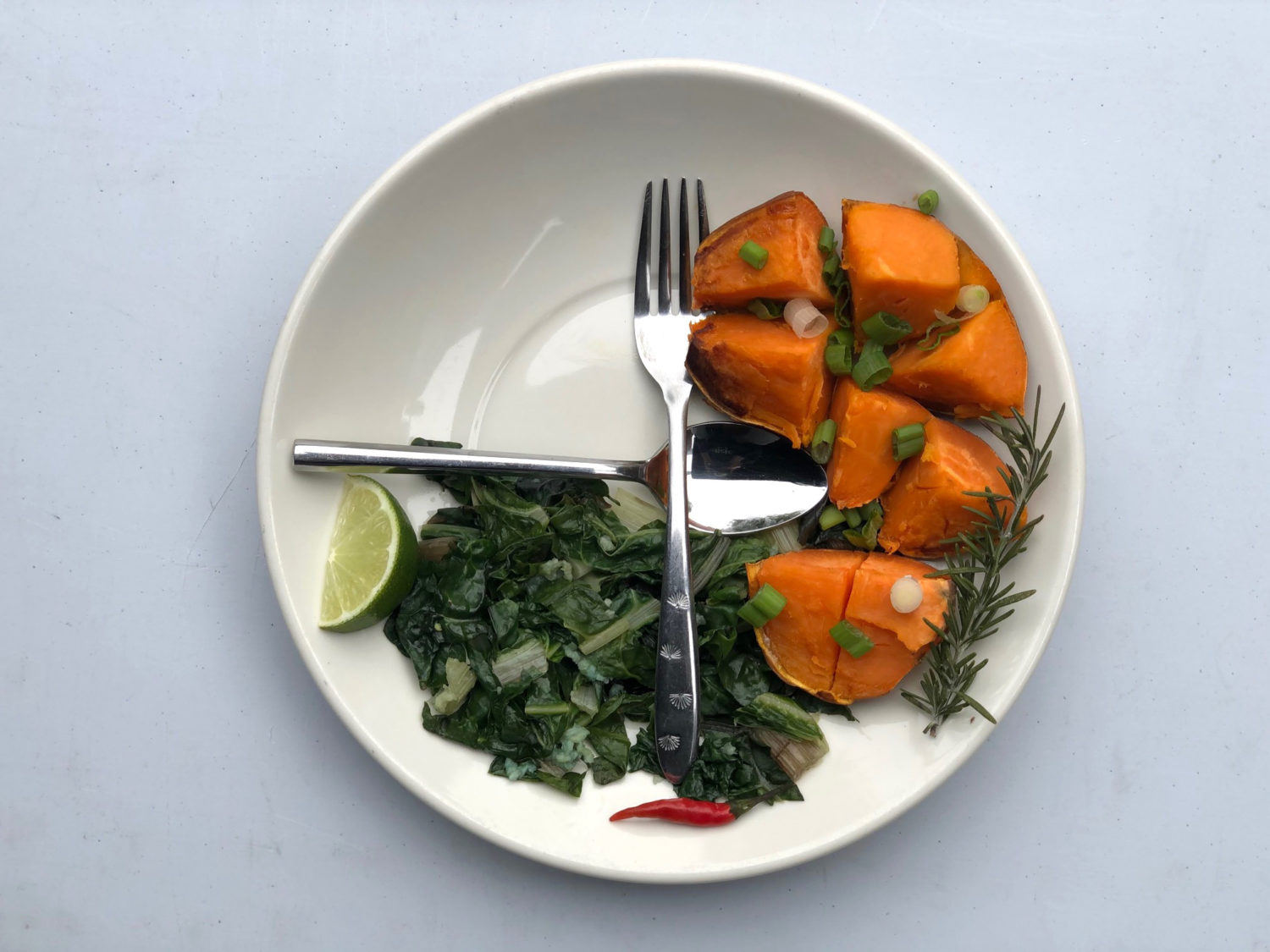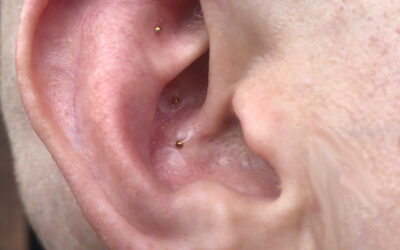Intermittent Fasting (IF) was the most popular ‘fad diet’ of last year. With this level of hype, I receive a lot of questions from patients about fasting– Is it safe? Does it really give the digestive system a break? The short answer is that ‘yes, fasting can be helpful for overall health, and IF is for many people the easiest method to incorporate in your life.’ Read on to find out why and how:
Why Fast
First of all, eating plant-based, exercising regularly, and sleeping well are still highly important factors for a healthy lifestyle. If you’ve got all of that down pat and want to level up, IF might be a good way to do so. Here’s why: due to natural fluctuations in food availability, humans may have evolved to function with little to no food periodically explaining a host of health benefits to short fasts including:
- Reduced Inflammation [1, 2]
- Better Heart and Brain Health: lowering “bad” LDL cholesterol, triglycerides, blood sugar and insulin resistance for heart health [3, 4] while increasing the hormone BDNF and the growth of new nerve cells for brain health [5, 6].
- Increased Cellular Repair: through processes such as autophagy, where cells digest and remove old and dysfunctional proteins [7, 8]
Of course, the most popular primary use of IF is for weight loss or maintenance. The simplest explanation for why this works is that eating fewer meals typically results in reduced calorie intake. In addition to the effects on insulin noted above, IF increases growth hormone levels [9], thereby aiding body fat elimination while maintaining lean muscle [10, 11]. A 2010 scientific literature review [12] found acupuncture helpful in metabolic disorders such as hyperglycemia, overweight, hyperphagia, hyperlipidemia, inflammation, and insulin sensitivity, all of which contribute to insulin resistance, making IF in conjunction with acupuncture treatment a powerful pairing.
Plus, most people find, as an added benefit, that IF simplifies life by reducing the number of meals to plan, cook and clean up after!
Sign me up!
Ready to try it out? I recommend starting with one of the methods below and choosing the one that feels best for you and fits best in your lifestyle:
- Crescendo Method: Fast 12–16 hours for two to three days a week. Fasting days should be nonconsecutive and spaced evenly across the week (such as Monday, Wednesday and Friday).
- The 24-hour Method: Fast for 24 hours once or twice a week. Start with 14–16 hour fasts and gradually build up.
- The 5:2 Method: Restrict calories to 25% of your usual intake (about 500 calories) for two days a week with one day between fasting days.
- Modified Alternate-Day Fasting: Fast every other day, eating “normally” on non-fasting days. You are allowed to consume 20–25% of your usual calorie intake (about 500 calories) on a fasting day.
- The Leangains Method: The most popular method, as it is often the easiest to maintain, is fasting for 16 hours a day or eating all calories within an eight-hour window. People with ovaries are advised to start with 14-hour fasts and increase to 16 hours only if you feel well because, when fasting for too long or too frequently, the hypothalamus may reduce the secretion of gonadotropin-releasing hormone (GnRH) potentially leading to irregular periods, infertility, poor bone health and other health effects [13]. So, if your menstrual cycle is disrupted after fasting for any length of time, consult a health professional.
During the fasting periods mentioned above, you can consume beverages (not smoothies). Low sugar beverages are best, such as unsweetened tea or flavored water. An acupuncturist can help tailor treatments to support your fasting schedule.
A Word of Caution
If you have a medical condition, you should consult with your doctor before trying fasting. This is particularly important if you:
- Have diabetes,
- Have problems with blood sugar regulation,
- Have low blood pressure,
- Take medications,
- Are underweight, or
- Have a history of eating disorders.
In the event that IF simply doesn’t feel good for you or you experience amenorrhea, you can consult a physician such as Dr. Fuhrman who is familiar with IF and even offers a 3-week course.
Works Cited
1. Aksungar FB1, Topkaya AE, Akyildiz M. “Interleukin-6, C-reactive protein and biochemical parameters during prolonged intermittent fasting.” Ann Nutr Metab. 2007;51(1):88-95. Epub 2007 Mar 19.
2. Faris MA1 et. al. “Intermittent fasting during Ramadan attenuates proinflammatory cytokines and immune cells in healthy subjects.” Nutr Res. 2012 Dec;32(12):947-55. doi: 10.1016/j.nutres.2012.06.021. Epub 2012 Oct 4.
3. Varady KA1, Bhutani S, Church EC, Klempel MC. “Short-term modified alternate-day fasting: a novel dietary strategy for weight loss and cardioprotection in obese adults.” Am J Clin Nutr. 2009 Nov;90(5):1138-43. doi: 10.3945/ajcn.2009.28380. Epub 2009 Sep 30.
4. Barnosky, Adrienne R. et al. “Intermittent fasting vs daily calorie restriction for type 2 diabetes prevention: a review of human findings.” Translational Research, Volume 164, Issue 4, 302 – 31.
5. Mattson MP1. “Energy intake, meal frequency, and health: a neurobiological perspective.” Annu Rev Nutr. 2005;25:237-60.
6. Bronwen Martin,a,* Mark P. Mattson,a,b and Stuart Maudsleya,c. “Caloric restriction and intermittent fasting: Two potential diets for successful brain aging.” Ageing Res Rev. 2006 Aug; 5(3): 332–353.
7. Kim I1, Lemasters JJ. “Mitochondrial degradation by autophagy (mitophagy) in GFP-LC3 transgenic hepatocytes during nutrient deprivation.” Am J Physiol Cell Physiol. 2011 Feb;300(2):C308-17. doi: 10.1152/ajpcell.00056.2010. Epub 2010 Nov 24.
8. Mehrdad Alirezaei,1 et. al. “Short-term fasting induces profound neuronal autophagy.” Autophagy. 2010 Aug 16; 6(6): 702–710.
9. Hartman ML1 et. al. “Augmented growth hormone (GH) secretory burst frequency and amplitude mediate enhanced GH secretion during a two-day fast in normal men.” J Clin Endocrinol Metab. 1992 Apr;74(4):757-65.
10. Rudman D1 et. al. “Effects of human growth hormone in men over 60 years old.” N Engl J Med. 1990 Jul 5;323(1):1-6.
11. Varady KA1. “Intermittent versus daily calorie restriction: which diet regimen is more effective for weight loss?” Obes Rev. 2011 Jul;12(7):e593-601. doi: 10.1111/j.1467-789X.2011.00873.x. Epub 2011 Mar 17.
12. Liang, Fengxia & Koya, Daisuke. (2010). “Acupuncture: Is it effective for treatment of insulin resistance?” Diabetes, obesity & metabolism. 12. 555-69. 10.1111/j.1463-1326.2009.01192.x.
13. Meczekalski B1 et. al. “Functional hypothalamic amenorrhea and its influence on women’s health.” J Endocrinol Invest. 2014 Nov;37(11):1049-56. doi: 10.1007/s40618-014-0169-3. Epub 2014 Sep 9.




